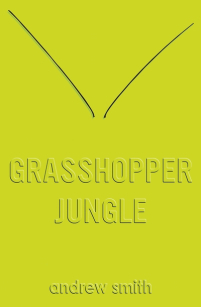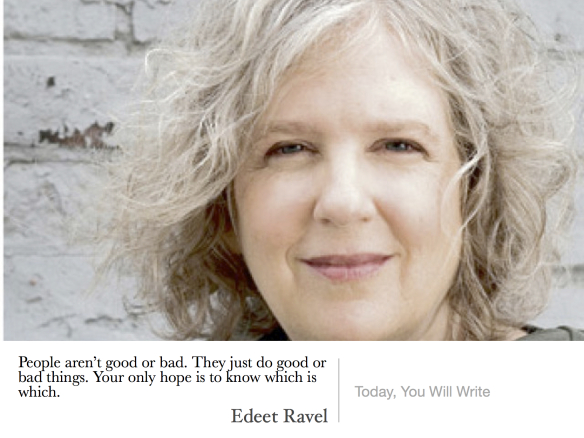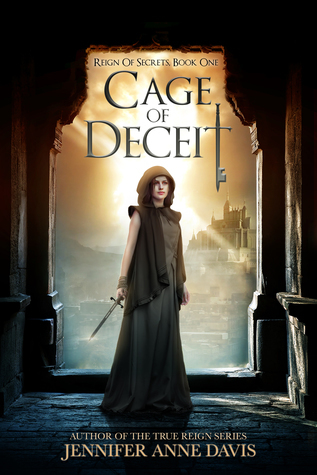More duds for your enjoyment and avoidance, the most recent in an occasional series of hatchet jobs. Links to others in the series are at the end of the page.
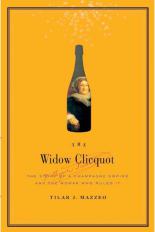 The Widow Clicquot: The Story of a Champagne Empire and the Woman Who Ruled It (2008), by Tilar J Mazzeo
The Widow Clicquot: The Story of a Champagne Empire and the Woman Who Ruled It (2008), by Tilar J Mazzeo
After reading this biography, my book club reassembled. ‘So, what did you think?’
A: ‘Complete tripe.’
B: ‘Agreed. The author’s a fraud, can’t possibly be a real historian.’
C: ‘What is a cultural historian anyway?’
D: ‘I liked some of the nuggets of information about champagne making.’
A: ‘And how champagne bottles evolved.’
B: ‘OK, yes, those were interesting. But she can’t be a historian, surely? She’s using 16 pages of “selected bibliography”, but every other sentence has ‘undoubtedly’, or ‘probably’. She invents so much it’s impossible to see what might have been fact.’
D: ‘Perhaps she thought she was writing a novel.’
B: ‘She thanks her parents in the Afterword for helping her spin a yarn through many drafts.’
A: ‘Hang on, in the Read On bit in my US edition, her degrees are all in Eng lit!’ [collective bemusement]
C: ‘So, it’s really a novel, then?’
B: ‘It reads as if she’d much rather write a novel than do any of her own historical research.’
D: ‘Says here that she travelled five thousand miles to see a copy of something, as if we’re supposed to be impressed.’
C: ‘She’s writing a book about Champagne, and we’re to be impressed that she went there?’
B: ‘The Afterword says that “writing this book has been an exercise in the oblique”, and “it sometimes took considerable imagination”.’
A: ‘It’s a really bad novelisation of other people’s historical writing.’
C: ‘It’s so repetitive. And her tone is all over the place.’
B: ‘My unfavourite bit is where she talks gravely about 19thC maternal death rates and infant mortality, and then burbles on about young married women combatting this by going dancing.’
C: ‘It was a waste of time.’
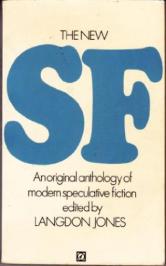 The New SF, edited by Langdon Jones (1969)
The New SF, edited by Langdon Jones (1969)
My friend Brad and I were going to read this vintage collection of science fiction for a blog conversation, but we gave up in appalled disgust. What a bad, bad book. I knew it was going to be tough going when I got to the end of Michael Moorcock’s survey introduction, in which he only mentions male authors. There is one story in the collection by a woman, Pamela Zoline, and it is the best in the book, the most readable, and least self-aggrandising. I’ll look for her short stories now.
Brad suggested that the first story in the collection, ‘Fourteen Stations on the Northern Line’ by Giles Gordon, should be called ‘Idle Thoughts of a Creepy Sociopathic Stalker’, as it’s about fourteen male voyeurs thinking about how to have sex with one thankfully oblivious woman walking down the street intent on her own business. Their sad little fantasies don’t offend me, but the sense of unwanted intrusion, and Gordon’s assumption that all a woman could possibly desire is male attention, make me angry, as does the waste of opportunity in many of the other pieces. Moorcock’s own ‘Peking Junction’ is aimless, provocatively coy twaddle, or, in Brad’s formulation, ‘Jerry Cornelius Parties with Chinese Generals while his Wife and Child are Immolated in the Distance’. He also contributes a four-line poem aspiring to sound like Ezra Pound. It gets no better until Zoline. George MacBeth recreates a car wash menu as his literary sf contribution, then interviews a perceptibly bored J G Ballard like a breathless sycophant. Brian Aldiss (with an initial W) does contribute a story but it’s not sf. Charles Platt writes a short and dreadful account of his sexual fantasies (again! What was it with men writing sf as penis-worship in the late 1960s?) which include plans for a 14-year old (female) virgin. Maxim Jablowski’s drearily pretentious ‘A science fiction story for Joni Mitchell’ also has nothing to do with sf, he just smears himself over the paper. Why did anyone think this garbage was worth the printer’s ink?
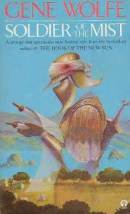 Gene Wolfe, Soldier of the Mist
Gene Wolfe, Soldier of the Mist
This was a disappointment, because I like Wolfe’s The Shadow of the Torturer a lot, and admire Wolfe as a world-builder. However, in this novel he is a far better world-builder than he is a teller of tales, and he sets himself impossible technical obstacles. Latro is a soldier in Ancient Greece, and he’s received a head wound that takes away his memory every night, so he has to commit the day’s events to a scroll to be able to remember who he is, what’s going on, who he’s met. This is a spectacularly inventive way to tell a story, but it requires the characters to tell Latro who they are and what he’s done and how they connect with his quest. By halfway through I was desperately bored of little Io, Latro’s slave-girl, piping up ‘Don’t forget the scroll, master!’ I was very, very tired of Wolfe’s method of hurrying up the narrative by deliberately missing bits out, that Latro will brief us on later, in linear time, so we are perpetually dealing with unintroduced characters already well-embedded in Latro’s own life. I liked the blend of fantasy and historical fiction, and the gods and goddesses are terrific, but I did wonder why they were bothering with the humans. This wasn’t a bad book as such, but it fails, heavily, from its own conceits.
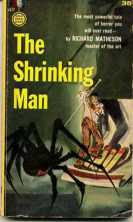 Richard Matheson, The Shrinking Man
Richard Matheson, The Shrinking Man
The premise is brilliant, and Matheson is a superb dreamer-up of ideas and science fiction concepts ahead of his time (see I Am Legend for the birth of the zombie in pulp fiction, for example), but his style sticks in my craw. I cannot be doing with the hyper-masculine angst of the 1950s American man. I know it’s important, I know the novel was influential, but I found it unreadable. There’s a good quote on the back from David Pringle: ‘like a Kafka fable in an Ideal Home Exhibition setting’. I don’t much enjoy Kafka either, but the Ideal Home setting is spot-on. Matheson’s character is utterly self-absorbed (yes, I would be too, if I were shrinking every day), and cannot, just CANNOT get over the fact that he is smaller than his wife and has no authority over his daughter because he is shorter than her. Enduring this is wearying, and tiresome, and thoroughly irritating, as a novel and as a situation. So many emotions, so little interest.
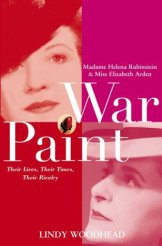 Lindy Woodhead, War Paint: Helena Rubenstein and Elizabeth Arden
Lindy Woodhead, War Paint: Helena Rubenstein and Elizabeth Arden
This double biography about the two most influential businesswomen in cosmetics is written by a fashion insider, but she isn’t a natural writer: she’s a publicist, and adopts the put-all-your-research-in method for writing this book. I was bored and tired by 1933, with 30 years more to go. There is no selectivity, no discernment about what story could be told: this book is a dumper-truck of facts tipped over the pages, and far too many uninteresting letters printed in full, ad oblivium, without editing. The story should have been sparkling and riveting, but it was tedious. The forthcoming Broadway show has a lot to fix.
 See also: Seven Duds for Seven Dustbins and Sorrow and Anger: Books I Couldn’t Finish Or Wished I Hadn’t Started
See also: Seven Duds for Seven Dustbins and Sorrow and Anger: Books I Couldn’t Finish Or Wished I Hadn’t Started
